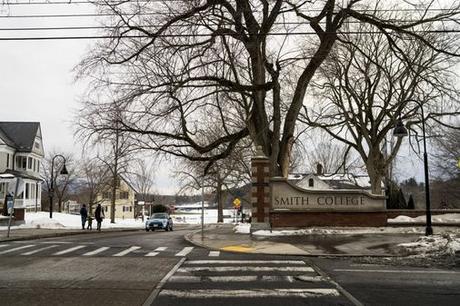
McCartney, a Medford native and daughter of a machinist, who was previously dean of Harvard Graduate School of Education, said in a follow-up phone interview on Friday that the new policy was personal to her.
"I was able to go to Tufts with generous financial assistance," McCartney said. Next up on Smith, she said, has been "a personal goal as well as a professional goal to increase accessibility."
The college, she said, has worked out its plan over the past year, helped by a $ 40 million donation from a Smith alumnus for financial aid, as well as strong returns. on its endowment.
When asked if she thought other schools could follow the lead of Smith and other colleges that have adopted similar measures, McCartney sounded an optimistic note.
"I think all college presidents know that access and affordability are really the most important issues they face," she said.
Smith, a private college for women in Northampton, hosts over 2,100 undergraduates with annual tuition fees and a board of trustees costing over $ 75,000.
In his letter, McCartney said the new policy would benefit currently enrolled freshman, sophomore and graduate students, as well as the college's Ada Comstock scholars and prospective students. She said the move aligns with Smith's goal of expanding accessibility to all qualified students, regardless of their financial resources.
The policy will have profound implications for racial justice on campus, she said, "given that on average black and Latin American students, in Smith and across the country, graduate with more. student debt than their peers.
The surge in grant emergency loans isn't the only change coming to campus next fall.
The college will also offer one-time "seed grants" of $ 1,000 to students with an expected family contribution of less than $ 7,000, she said, in addition to regular student financial aid programs.
About 21% of Smith's students will be eligible for these scholarships, McCartney said.
And seniors receiving needs-based grants who plan to graduate in January or May will receive $ 2,000.one-time 'start-up grants' to help cover the costs of transitioning to postgraduate life.
"Taken together, these changes to our financial aid program represent an annual increase of $ 7 million in the financial aid budget, benefiting over 60% of our students," McCartney wrote. A spokesperson for the school said this translates to more than 1,550 undergraduates.
In total, next year, McCartney wrote, Smith will "award more than $ 90 million" in financial assistance.
Smith said in a separate statement that this was the first women's college to cut loans and join "a select group of institutions" - including Harvard, Princeton and Yale - to take the plunge. About 20 schools nationwide give grants instead of loans, Smith said.
"This is a bold and important investment for Smith, which reflects the college's commitment to its students and their future," said Alison Overseth, chair of the Smith board, in the statement.
The national student debt crisis continues to rock working and middle-class households from coast to coast to coast, with a pandemic-related moratorium on federal student loan repayments expiring in late January.
About 44 million Americans have federal student loans totaling about $ 1.6 trillion, the Globe reported in February, and some 7 million Americans over the age of 50 still have federal student loan debt, the government says. seizing social security benefits from tens of thousands of the elderly to recover. overdue student loan debt.
Material from earlier Globe stories has been used in this report.
Travis Andersen can be contacted at [email protected] Follow him on twitter @TAGlobe.

